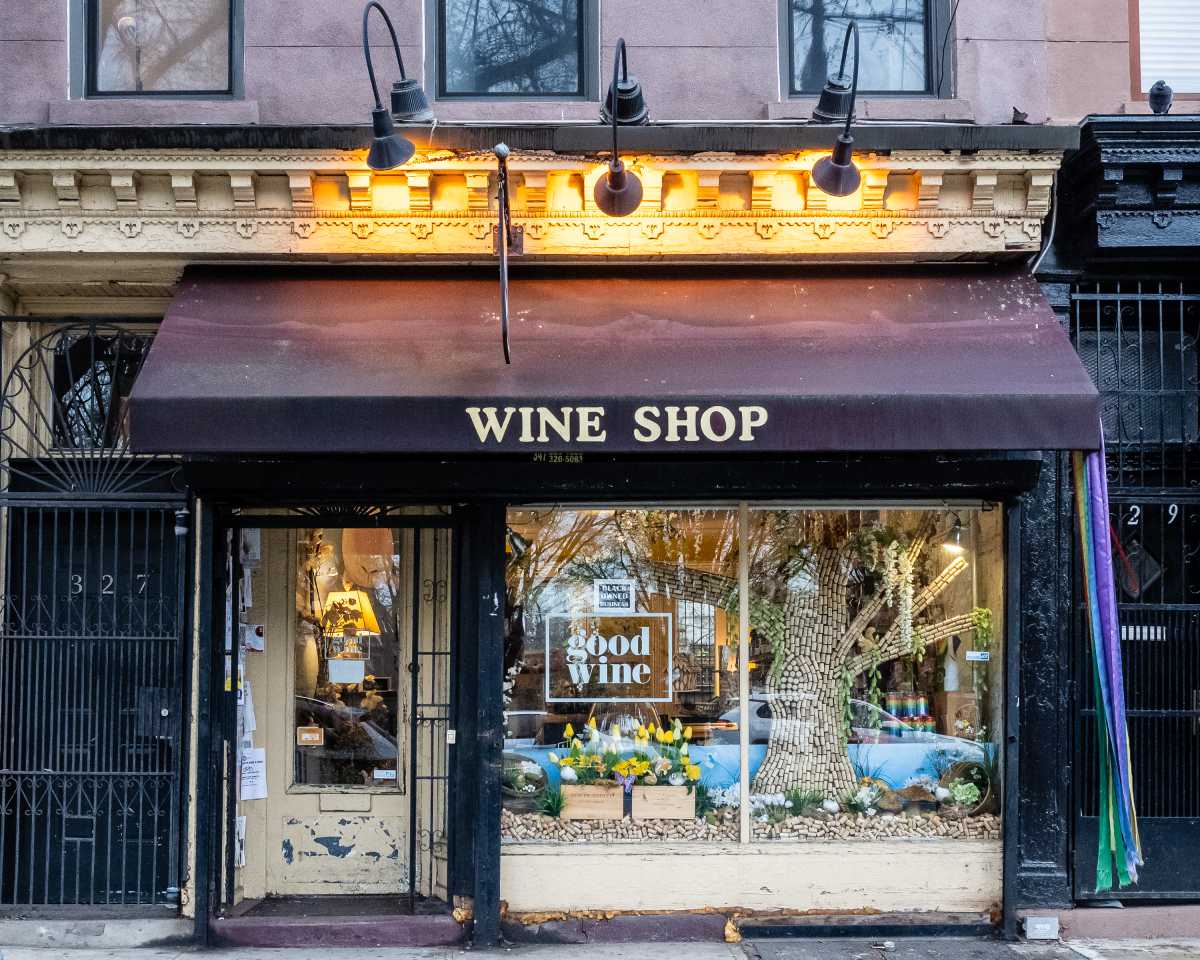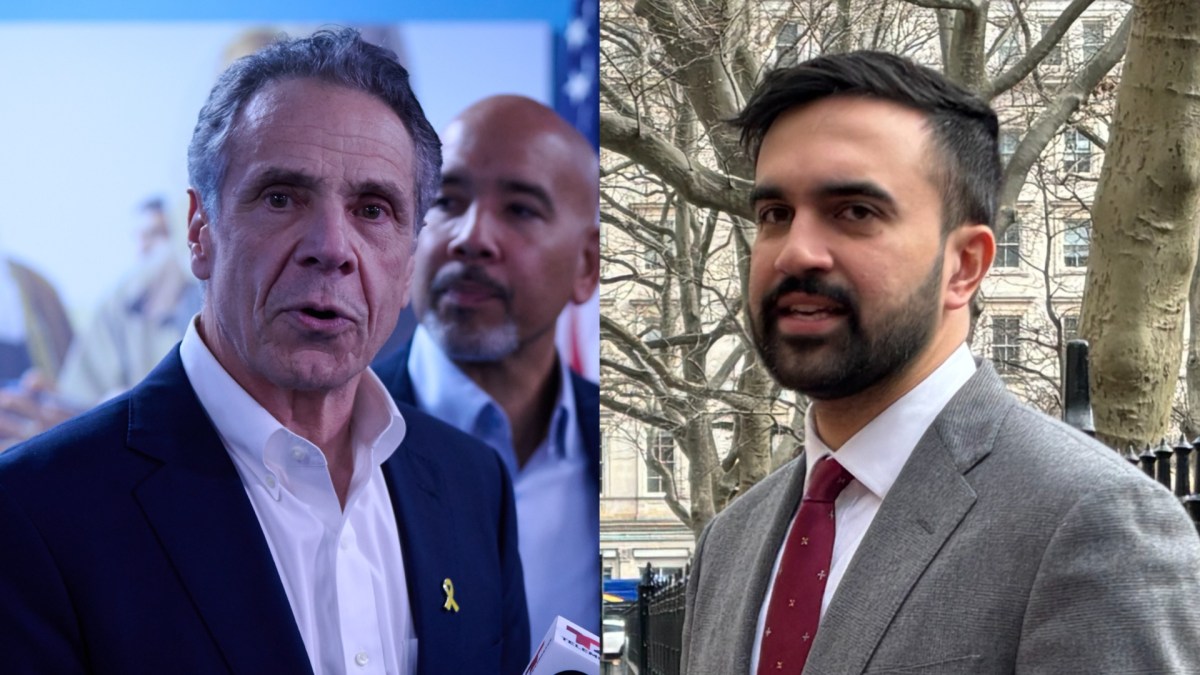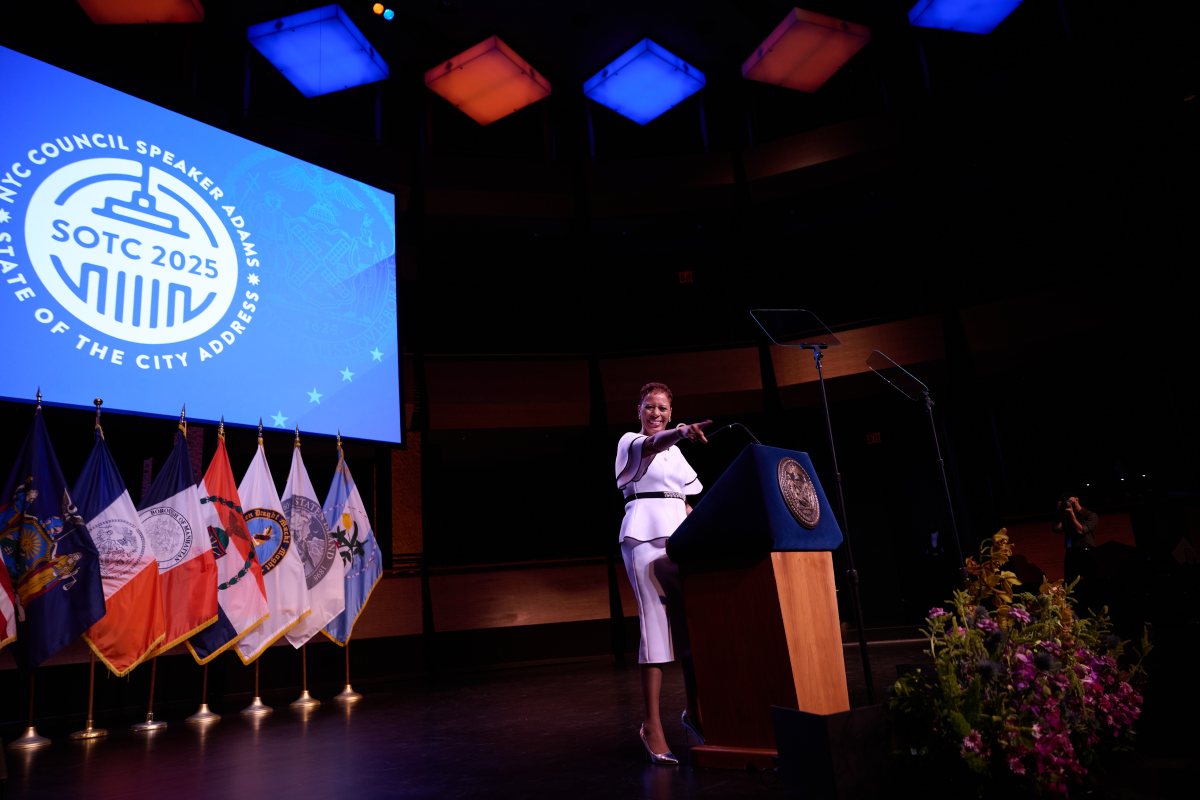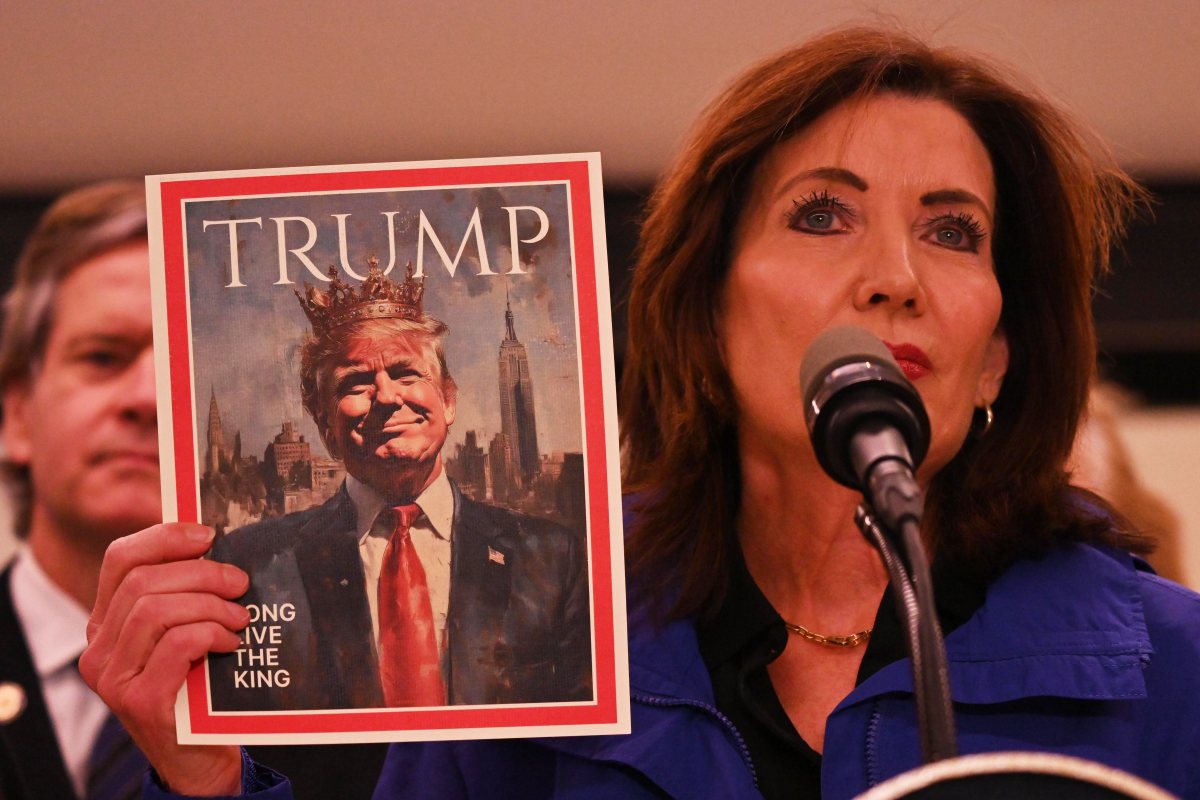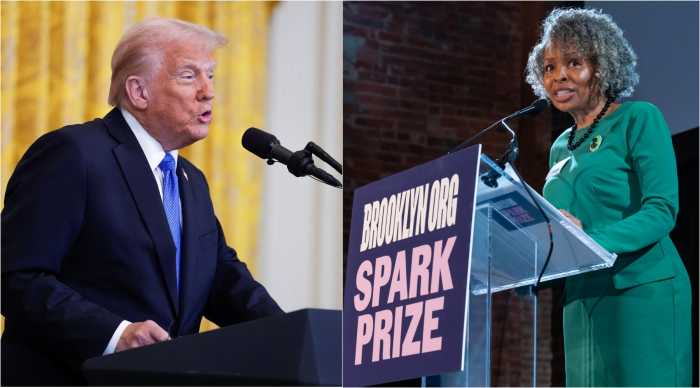Brooklyn businesses and consumers are bracing for higher prices after President Donald Trump imposed sweeping tariffs on imports from about 60 U.S. trade partners, only to abruptly revise the policy hours later.
The original tariffs, ranging from 11% to 104%, took effect at midnight Wednesday. By that afternoon, Trump paused the country-specific rates for 90 days, leaving in place a universal 10% tariff rate implemented last week — but bumped tariffs on Chinese goods up to 125% from the originally-planned 104%. While the pause initially brought relief — the European Union paused retaliatory tariffs on U.S. goods to allow for negotiations, and stock markets soared — but the reprieve was brief. Markets fell again on Thursday as uncertainty set in.
When the tariffs take effect, inflation-weary Brooklynites could see higher costs on everything from fruit, coffee and wine to electronics, toys, cars and clothing. Yale University’s Budget Lab estimates the cost of fresh produce will rise by 4%, with food prices overall increasing by 2.8%.
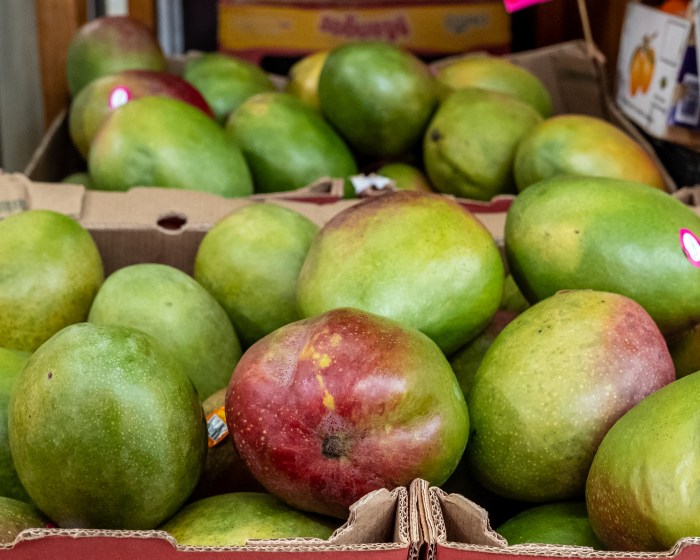
While larger corporations may be able to absorb higher tariffs in the short term, small businesses fear the added tax burden could be catastrophic — potentially leading to layoffs or even closures.
Randy Peers, president and CEO of the Brooklyn Chamber of Commerce, said uncertainty and anxiety are growing among local business owners already grappling with high inflation.
“Everyone should understand that these tariffs don’t just impact large corporations,” Peers told Brooklyn Paper. “They impact small businesses across the board.”
Inflation was the top concern for Brooklyn businesses in 2024, with 61% reporting that it had “significantly” increased their costs, according to a Brooklyn Chamber of Commerce Business Impact Survey.
“We’re already dealing with inflationary pressure, and these tariffs are just going to add to that,” Peers said. “I’m afraid to say it, but there’s going to be some small businesses that won’t be able to absorb this. It just this might be the thing that puts them over the edge.”
Heather Johnston, owner of Good Wine in Park Slope — one of the few Black female-owned wine shops in the country — said about 70% of her inventory comes from Europe, and the new tariffs wouldn’t make America “anything but isolated and expensive.”
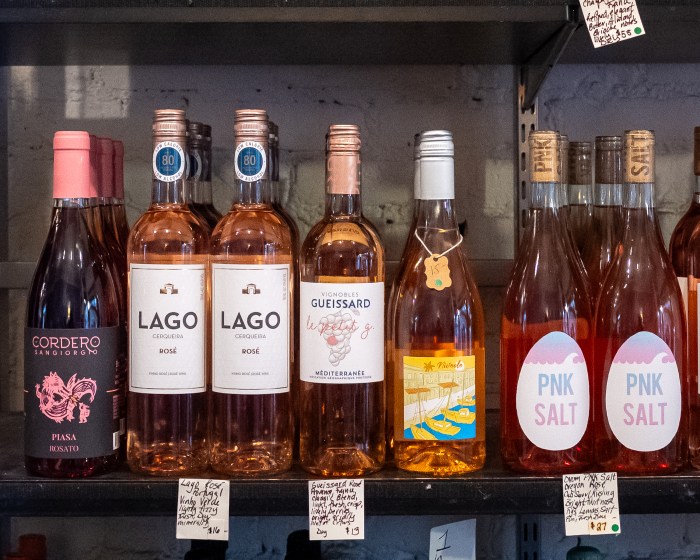
Johnston’s organic and sustainable wine inventory is carefully curated, and she works with smaller wine producers and suppliers who offer high-quality wines. She fears they’ll be hit the hardest.
“That wine won’t be as available because they’ll have to consolidate or get absorbed by bigger companies who will have less manpower to bring me the wines,” Johnston said. “It’s going to, for no good reason, impact me as a small business owner and my niche, doing something a little different.”
She said she has already noticed price increases.
“A bottle I would consider a value bottle for $16 just went up to $21, and that, to me, is a whole different category of wine,” she said. “If consumers are going to have to look for quality wine at $15, I have my work cut out for me. And who wants to spend $40 on a bottle of wine on a Tuesday night with their pizza?”
Chris Taylor, owner of Li-Lac Chocolates, is mostly worried the tariffs could trigger a recession, prompting his company to be cautious with investments and payroll.
“We’ve been investing pretty aggressively the last couple of years,” Taylor said. “We’ve been increasing payroll pretty aggressively, all that’s going to freeze now. We’re going to be very cautious till we figure out what the landscapes are like.”
Dave Bolotsky, owner of the online marketplace Uncommon Goods, said he sees Trump’s tariffs as a negotiating tactic and expects the trade landscape could look very different in six months.
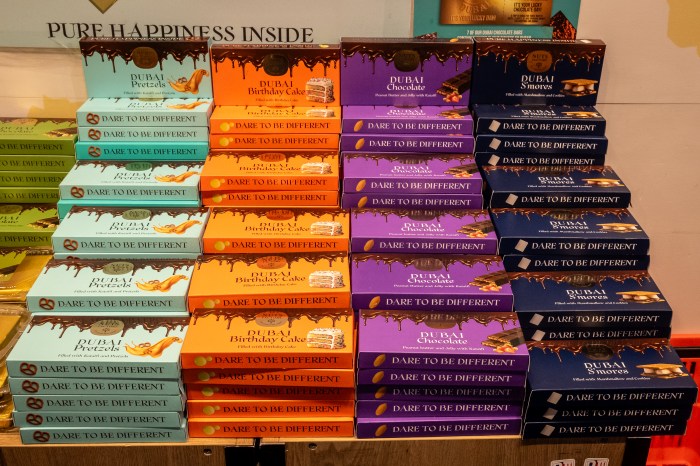
“But if we do end up in a situation where there is a significant increase in tariffs, it’s going to hurt both consumer confidence and also discretionary spending,” Bolotsky said. “We are selling things that people want, not necessities. So if the cost of necessities goes up, there will be less money for people to spend on desires, which is a concern.”
On Monday, U.S. Sen. Chuck Schumer said the New York City metropolitan area, one of the world’s largest trade hubs, is particularly vulnerable to the effects of tariffs. The area accounts imported more than $100 billion worth of goods in 2023, according to a recent report by the New York State Comptroller, most from Europe.
“President Trump’s pinball tariff strategy will wreak total havoc on New York City and is likely to drive us right into a recession,” Schumer said. “Some of the Big Apple’s core sectors are being targeted already, New Yorkers face roughly $20 billion in increased costs, and a staggering 260,000 New York jobs are under threat unless Donald Trump backs off — and that is exactly what I am urging today. Back off, President Trump.”
Schumer also highlighted warnings from major banks like JPMorgan and Goldman Sachs, which estimate the likelihood of the U.S. heading into a recession due to Trump’s tariffs and economic policies at 40-60%.
“I urge the president to back off,” he said. “Put down the golf clubs and pick up the papers and have a look at what is going on because it is anything but ‘great.’”


